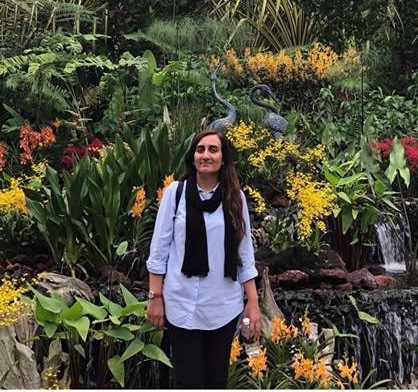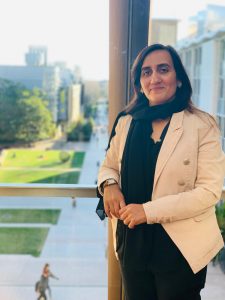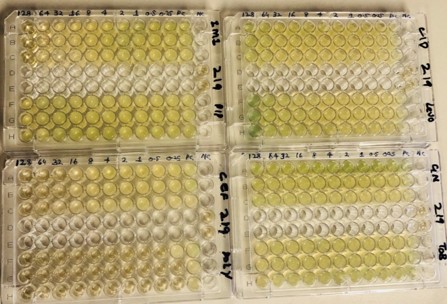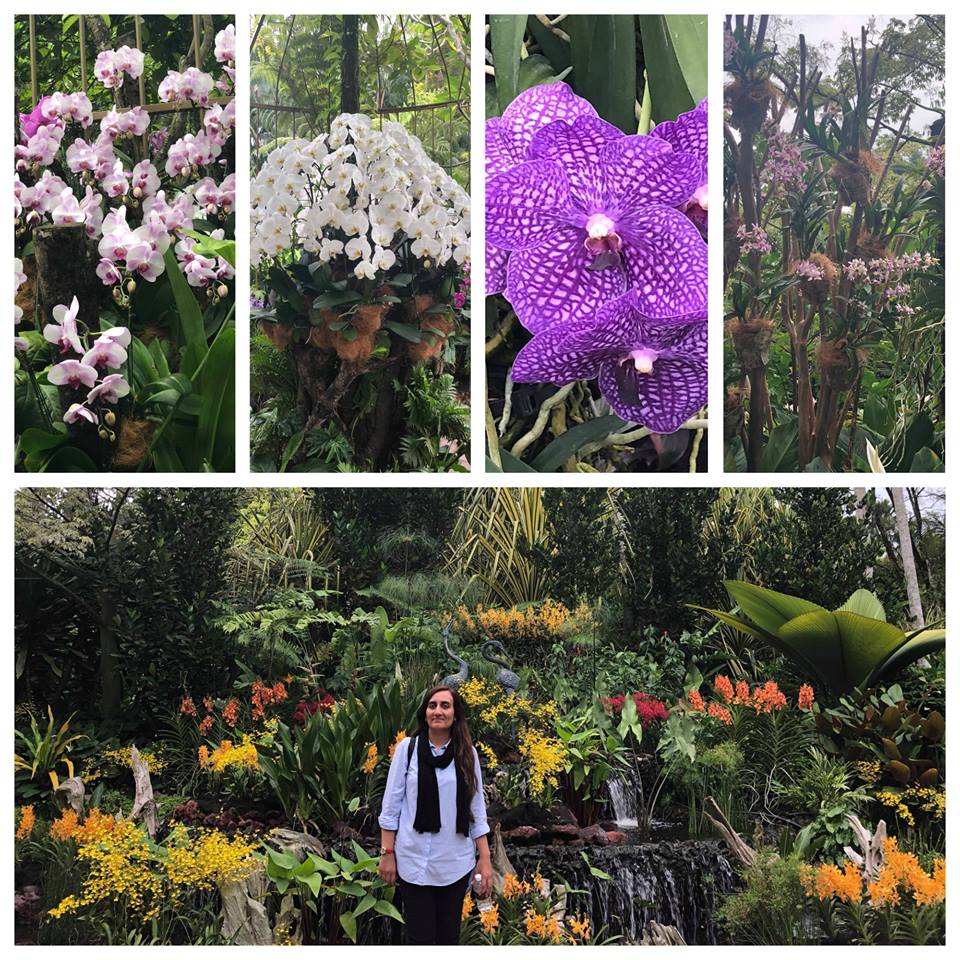By Munkhshur Myekhlai
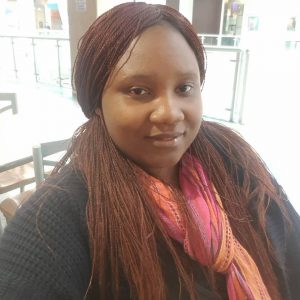 Meet Ornella Mekountchou. Hailing all the way from Cameroon, Ornella has been interested in maths and science since her childhood. Her interests led her to India where she graduated as an optometrist from the Bausch and Lomb School of Optometry in 2013. She returned to Cameroon, joining the teaching team of a training school in Yaoundé as optometrist lecturer before deciding to travel the world again, this time heading to Australia to pursue her PhD.
Meet Ornella Mekountchou. Hailing all the way from Cameroon, Ornella has been interested in maths and science since her childhood. Her interests led her to India where she graduated as an optometrist from the Bausch and Lomb School of Optometry in 2013. She returned to Cameroon, joining the teaching team of a training school in Yaoundé as optometrist lecturer before deciding to travel the world again, this time heading to Australia to pursue her PhD.
What is the focus of your PhD?
I am currently doing a PhD on myopia at the School of Optometry and Vision Science. Myopia (also known as shortsightedness) is a condition where a person can see objects clearly when they are nearby but has difficulties to see distant objects. Myopia is a massive problem worldwide and in later life can lead to vision problems and even blindness. My research is focused on developing systems to test potential myopia control treatments.
Why did you choose to study science?
I have always been interested in maths and science although my parents tried to convince me to study other subjects too! I first became interested in optometry and the eye when I visited the eye specialist for the first time with my younger brother. Over the years, I also realized that I wanted to have a career where I could use my skills and knowledge to help people and so naturally being optometrist was a perfect fit!
What do you like most about doing research?
There are too many things to be honest! If I had to choose one, I think I really enjoy generating results that I can see having an impact the world. I know my research is addressing a major eyesight issue and developing methods to prevent them and that is pretty special. I also love being able to share scientific knowledge with the community.
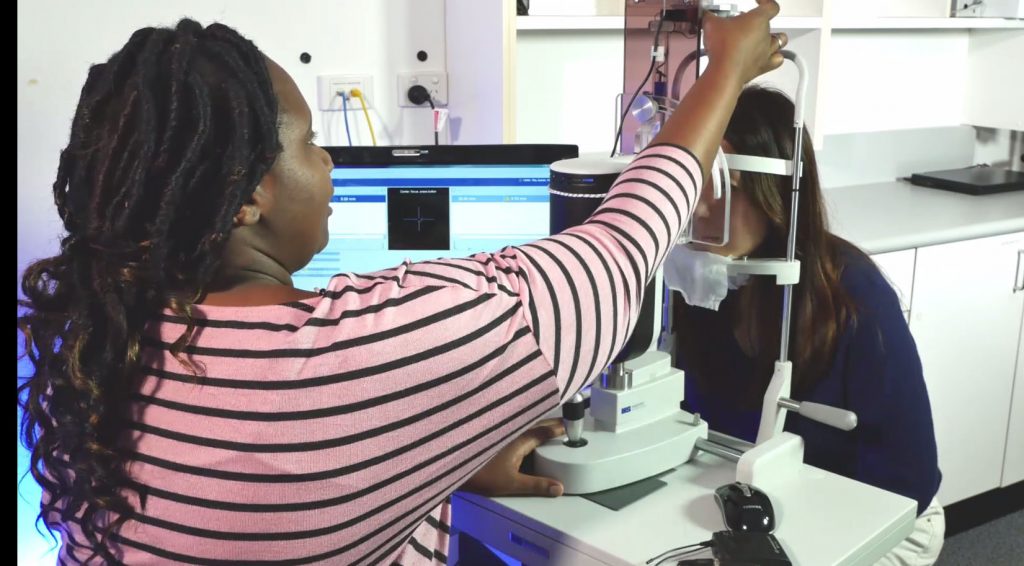
What do you like to do when you are not doing research?
When I am not doing research, I like to practice hair styling. In African culture, women commonly do different things with their hair, including styling, braiding and twisting. I also like hanging out with friends, listening and dancing to music, volunteering and traveling. I also LOVE to cook and to feed people!
What are your future plans?
I really want to be able to improve the healthcare system in my home country of Cameroon. So far, being an optometrist gave me the opportunity to do this by providing care for people in a direct way. Now, as I also become a researcher, my hope to continue to contribute to this care by discovering better treatments to help people with eye conditions. Hopefully after I finish my PhD I can continue to gain experience as a researcher before I go back to my country and continue to establish a good optometry practice.
What do you want to say to younger generations who want to study in science?
I say go for it! Pursue a career in Science and most importantly, don’t give up if something fails. For every opportunity I have gotten, I failed at least more than once. Whilst I certainly found it difficult to be rejected at times, I am always glad I tried. Don’t take it from me, experience it yourself!
Follow Ornella on Twitter
Follow Munkhshur on Twitter


